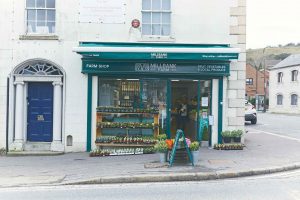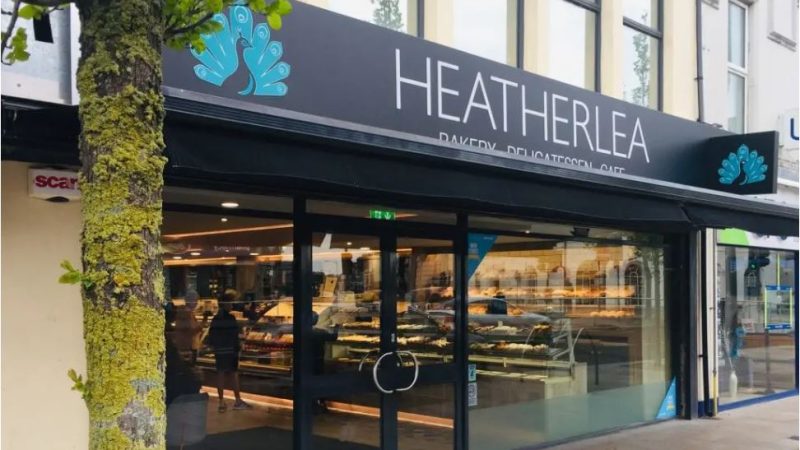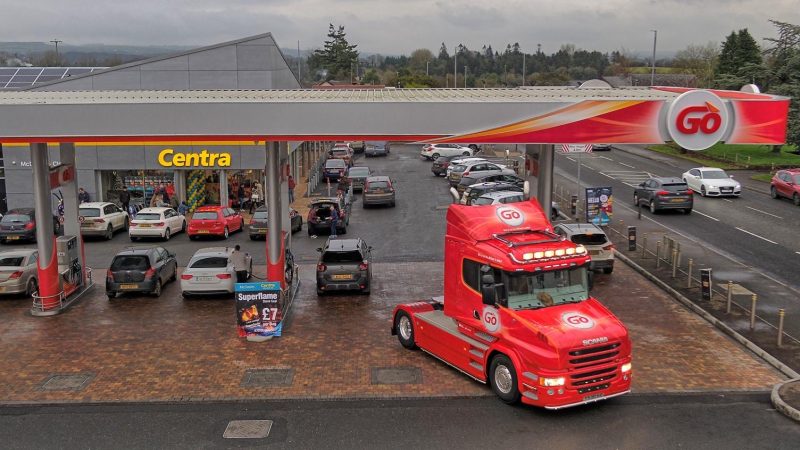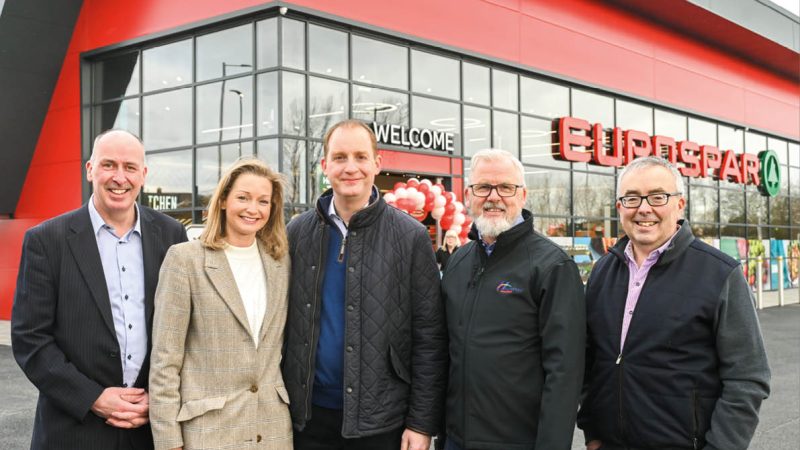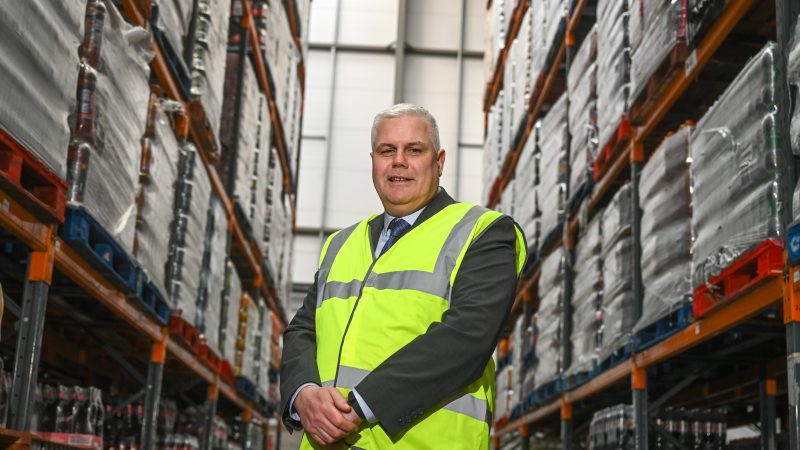Something special in Saintfield
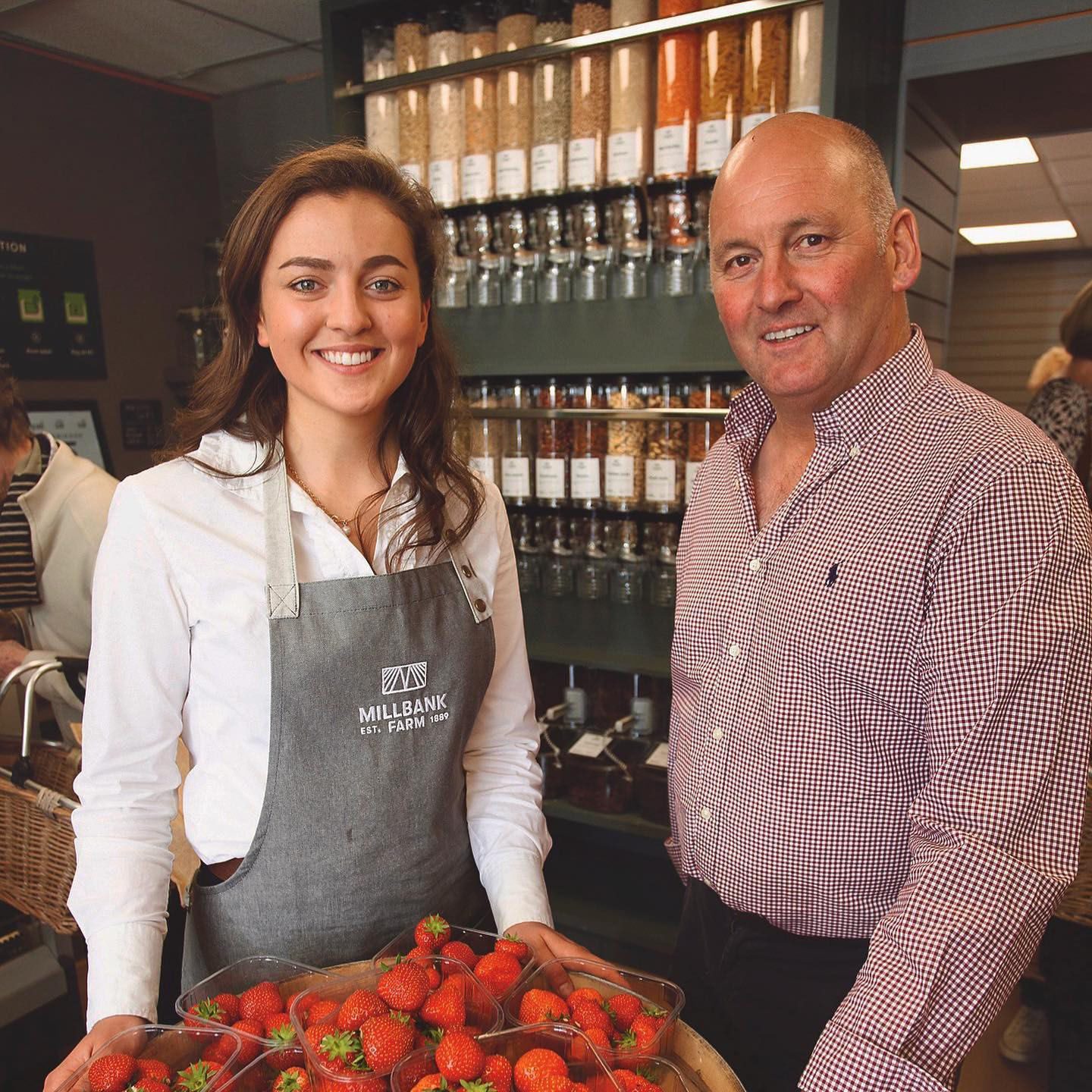
Millbank Farm Shop still serving direct from the family farm – since the late nineteenth century – NR talks to Emily McGowan about the family business
Spanning five generations of the same family, Millbank Farm has existed on the same site in Killinchy since the late nineteenth century. A lot has changed over the decades, but the farm has continued to produce great quality food for six generations and counting.
Millbank Farm is a sixth generation family farm established in 1889. It has been through many transformations in its time – producing everything from cattle, sheep, poultry, and a range of vegetables. In 1806, a corn and sutch mill was established processing flax for the linen trade, but today it is a medium mixed farm of 400 acres – comprising of 80 acres of cereals, 80 acres of veg, as well as grazing for diary heifers and 200 ewes. Together with two broiler houses for Moy Park and the farms latest business venture of its first direct to consumer business – Millbank Farm Shop in Saintfield.
Adrian is at the helm of the McGowan Family, having had three daughters with his wife Patricia. The eldest, Susannah is a Graphic designer in London, Victoria is a primary school teacher at the local primary school and the youngest, Emily who is joining her Dad at the Farm in Killinchy.
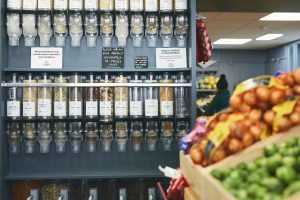
Quality local product
Emily explained “The Farm Shop was established in June 2019 to provide fresh food from the heart of Saintfield. Our farm shop offers quality local fruit, vegetables, cheese and fine ingredients – much of it grown only six miles away on the family farm. It also has the first ‘No Waste Station’ in Northern Ireland, where you can reuse your own containers with a selection of nuts, dried fruit and wholefoods.”
Farm to fork
“On the 400 acre small mixed farm we now grow over 40 varieties of vegetables for the farm shop. Varieties include, purple sprouting broccoli, squash, cauliflower, cabbage, courgette, carrots, potatoes, scallions, tomatoes. Depending on the daily demand, produce is picked daily for the farm shop” said Emily. “ For the produce we cannot grow ourselves, North Down Market in Belfast serves us. We travel into Belfast five mornings a week at 4am to pick up exotics including, melons, lemons, oranges, dragon fruit and kiwis.
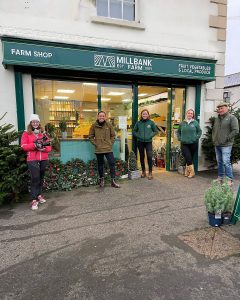
Consumer changes
Did Covid bring with it changes to consumer attitudes and behaviours to buying local produce?
“Initially it brought about panic not only with our customers, but within our team. At this early stage we didn’t have an online ordering system, as a result, all of the collections and deliveries were manually organised. Organising this for hundreds of weekly orders was challenging, however, we had all hands on deck including sisters and uncles who all got stuck in.
“However, once everything settled and a new normal was established it has got people staying closer to home and shopping locally. Many individuals are starting to realise the value in local produce, not only with us, but across the province with many local businesses.
Momentum
“The pandemic has brought a whole new momentum to our business and has allowed us to broaden our range and introduce more products to appeal to a wider customer base – including a wide range of cheese, more specialised cooking ingredients including anchovies, sardines and saffron. Having said that, the core of our business is still top quality fruit and vegetables.
“Produce that are at their prime and in season are always the top sellers – Killinchy Strawberries and Raspberries , coloured Carrots, early season new potatoes, hand cut soup veg, English Asparagus and in season exotics – citrus fruits, pineapples, bananas.”
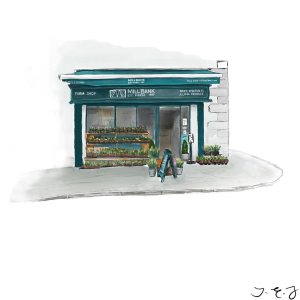
Ethos
Millbank Farnshop means all the current features of sustainable shopping and environmentally conscious shopping – what is the business ethos?
“Service with a smile – with generations of expertise. Our team are clued up on everything we sell, and are always happy to explain whatever you need to know” said Emily.
“Personally selected with a love of good food – if we don’t grow it on our fields ourselves, we work with local producers and personally choose our variety of produce, meaning we can provide the best selection for our customers.
“Working with the seasons and with a respect for the environment is important. Seasonal food is fresher, tastier, and has fewer food miles – while that means we don’t always have some products in stock, we think it’s the best way to buy, and eat fresh food.
“Where possible all of our fruit and veg isn’t packaged in unnecessary packaging. However, this brings challenges as plastic fundamentally increases shelf life. However, with having the farm so close and going to the market 5 times a week, we don’t need plastic as our produce is fresh daily.”
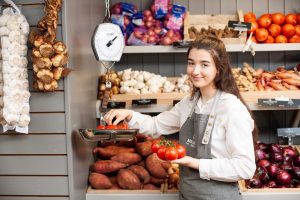
No Waste Station
The No Waste Station has also been a huge success for Millbank Farm Shop.
“We have a ‘No Waste station’ to refill your containers with dried nuts, seeds, dried fruit and more. Customers bring their own containers: glass jars, Tupperwares, and takeaway tubs are ideal.
“We also supply paper bags and glass jars if the customer forgets to pack their own containers. Then they weigh out what you’d like and only pay for what they need!”
Sustainability
“We are committed to sustainability – we farm the land in a sympathetic way, and take every opportunity to enhance the local biodiversity of the countryside. Some of our environmental initiatives include tree planting over 14 acres, seeding wild flowers, keeping livestock to increase organic matter, installing bat boxes, laying crop netting, orchard planting.”
Let’s hope Millbank Farm and Farm Shop will still be serving Saintfield and surrounds six generations from now.
